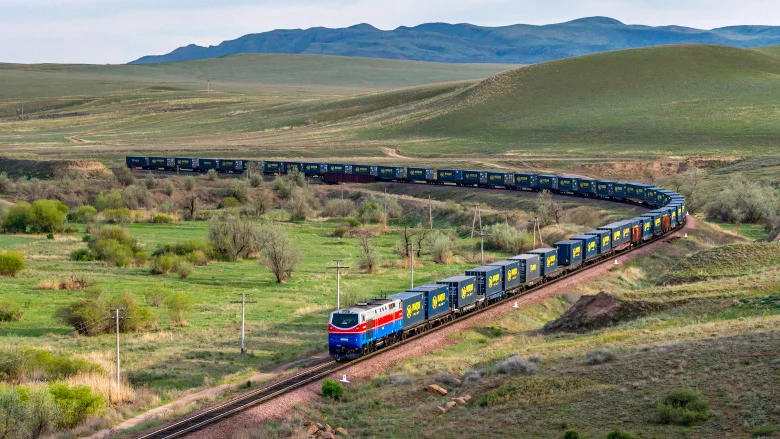BAKU, Azerbaijan, July 9. Kazakhstan is consistently expanding its transport infrastructure along North–South and East–West key transit corridors, with particular focus on developing the Trans-Caspian International Transport Route, the country's political analyst Aygerim Zhampetova told Trend.
According to her, amid growing instability in neighboring regions such as the Middle East and Afghanistan, Kazakhstan acts not only as a mediator and investor but also as an active proponent of dialogue among various states.
“The country’s strategy, based on the principles of peaceful coexistence, transport connectivity, and economic integration, finds its embodiment in concrete initiatives such as the project to construct the Turgundi–Herat railway line. This line will not only connect Central and South Asia but will also play an important role both for the region and in restoring Afghanistan’s economic infrastructure, which faces high risks of destabilization,” she noted.
Zhampetova also emphasized that Kazakhstan is active in the field of climate and energy security, as evidenced by its signing of the Charter of the ECO (Economic Cooperation Organization) Clean Energy Center, based in Baku.
“This creates new conditions for expanding cooperation in sustainable energy, exchanging environmentally friendly technologies, and coordinating the efforts of ECO countries to form an integrated energy policy,” the analyst added.
In her elucidation, the memorandum ratified post-conclave in
Khankendi, Azerbaijan encapsulated the synergistic ambition of the
member states to enhance reciprocal economic and humanitarian
collaboration. It also articulated the necessity for synergistic
initiatives to bolster the region’s robustness against exogenous
perturbations and overarching global dilemmas, encompassing the
ramifications of hostilities in the Middle East.
“Under these circumstances, the summit in Khankendi emerged as a
pivotal maneuver in the establishment of a novel framework for
regional engagement and the enhancement of collaborative synergies
among the involved nations,” Zhampetova emphasized.
The analyst further articulated that the 17th ECO summit
underscored the escalating significance of Kazakhstan and
Azerbaijan as proactive and strategically aligned stakeholders in
the domain of regional collaboration.
“Both countries demonstrated their desire to strengthen the institutional and infrastructure base of the ECO, develop transport links, promote the green agenda, and ensure inclusive development in the expanding Eurasian space,” she concluded.
Stay up-to-date with more news on Trend News Agency's WhatsApp channel







